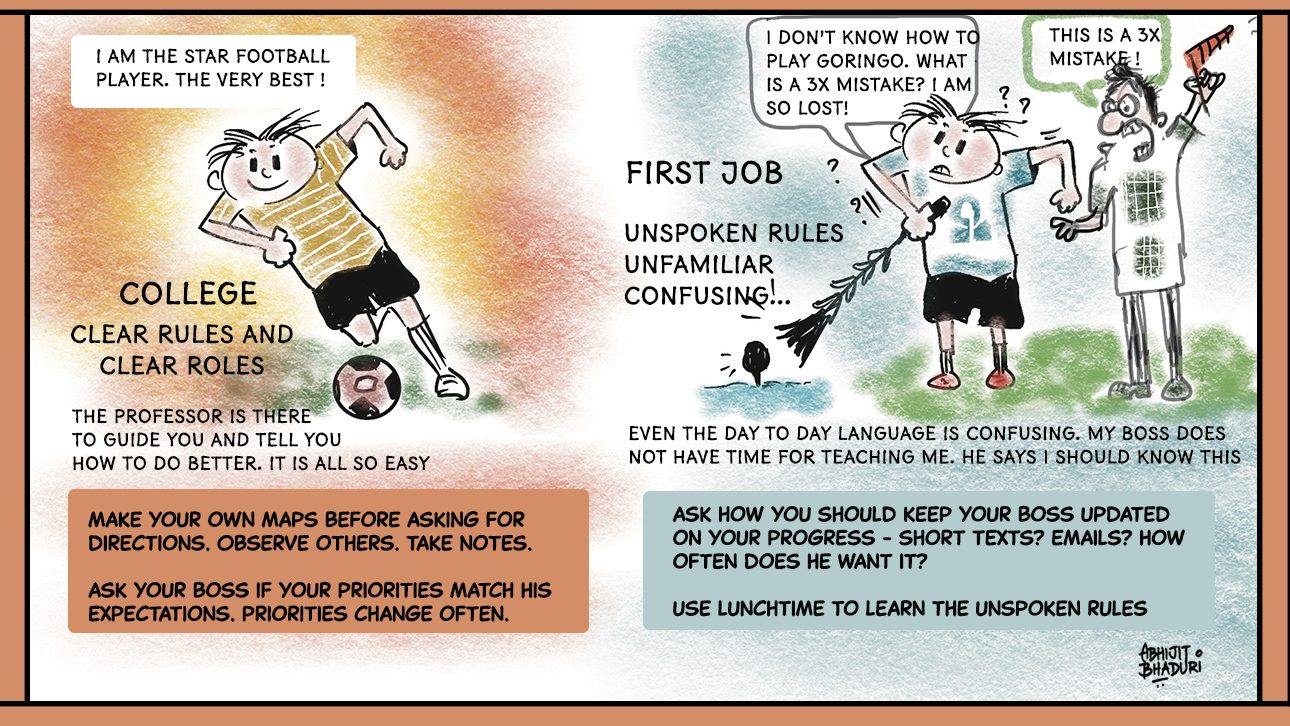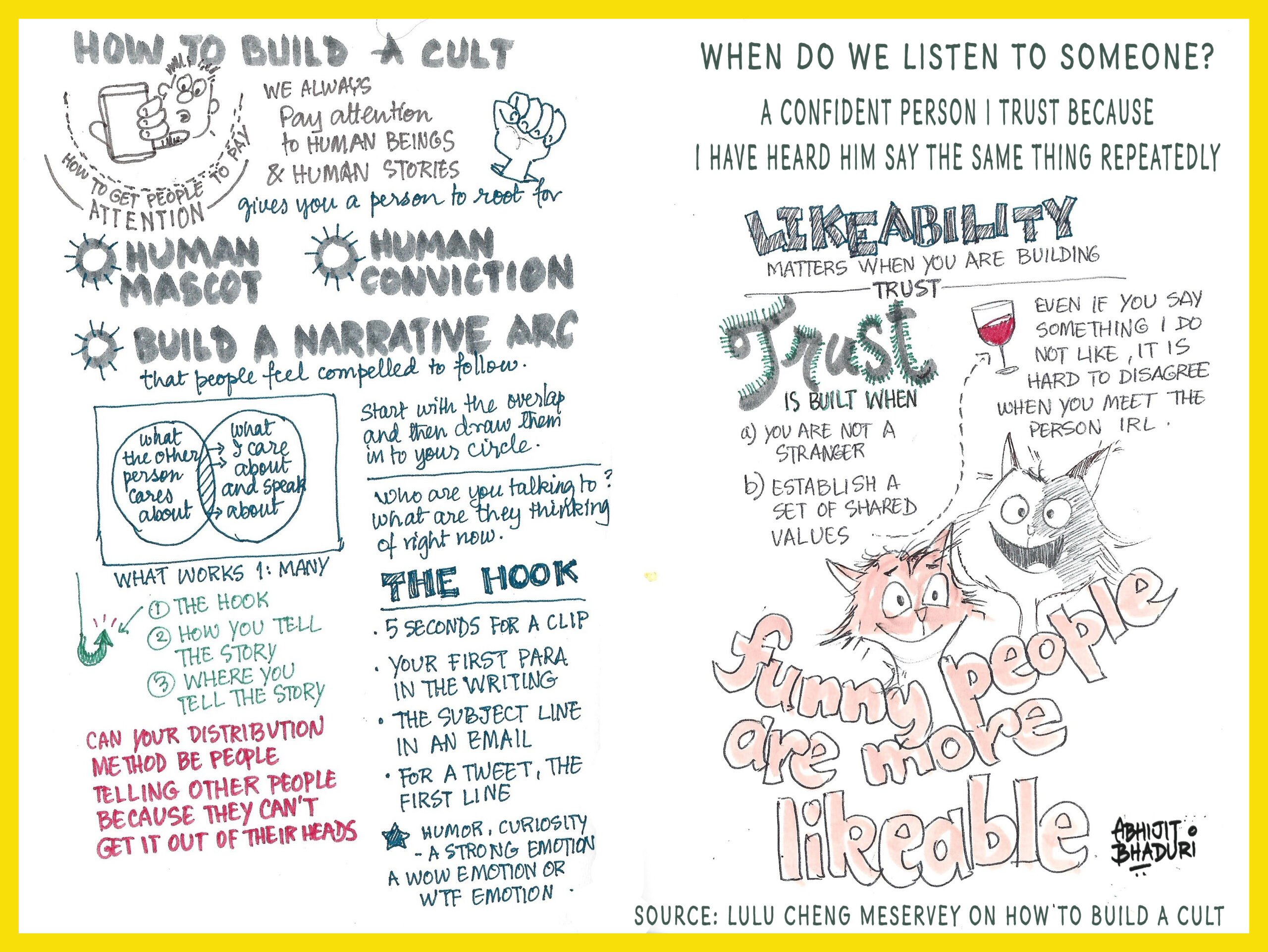
College had prepared me to be a great employee. The office had a dress code and a boss instead of the professor, right?
I was so wrong.
College felt like football—a game I knew well, with clear rules and defined roles. You always knew who won. But my first job? It felt like being dropped into a game of rugby or lacrosse—unfamiliar, fast-paced, and full of unspoken rules. I didn’t know if I was meant to run, pass, or just stay out of the way. Everyone else seemed to know what to do, while I stood frozen, afraid to mess up. No one paused to explain. There was no manual—just a silent expectation that I’d figure it out while the game kept moving.
The truth is, the transition from college to work isn’t just a learning curve—it’s an identity shift.
In college, your job was to learn. At work, your job is still to learn—but while contributing, adapting, and navigating people and politics in real time. College teaches you how to master a structured syllabus. Work expects you to discover and quickly master a system that is alien to most of us.
So how do you start making sense of the game when you don’t even know the rules? Here are three practical strategies I recommend to every new professional:

1. Make your own map before asking for directions.
You won’t get a daily checklist. That doesn’t mean your manager is ignoring you—it just means the workplace expects self-starters.
Here’s what to do:
- At the end of each day, jot down what you worked on, what’s unclear, and what you think your next steps are.
- Then, schedule a short check-in with your manager. Say:
“Here’s what I’ve been focusing on. Does that match your priorities for me this week?”
You don’t need perfect answers. What you’re doing is checking if your direction matches theirs. That’s called alignment—and it matters more than accuracy in the early days.
2. Don’t eat lunch alone—ever.
Your real onboarding happens at the lunch table, not in the training room. That’s where the hidden curriculum of the workplace is shared—who makes decisions, how projects are prioritized, what people actually care about.
So:
- Always say yes to a lunch or coffee invite – especially with old timers.
- Take the lead. Ask a colleague,
“I’m going for lunch—want to join?”
You don’t need to be an extrovert. Just be genuinely curious. Ask things like, “How did you get into this role?” or “What do you wish someone had told you in your first month?”
These casual conversations will help you read the workplace far faster than any formal document.
3. Understand how your boss works—and match their style.
You might expect your manager to explain everything or check in regularly. Most won’t. Not because they don’t care—but because they expect you to be independent.
Here’s how to make that easier:
- Observe. Do they respond faster to texts or email? Do they prefer detailed updates or short high-level summaries?
- Then ask directly:
“What’s the best way to keep you updated on my work?”
That one question can unlock a smoother relationship. Once you know their style, adjust your communication to match. If they like brief summaries, don’t send essays. If they expect regular updates, don’t go silent for days.
Remember, great employees don’t just deliver—they deliver in the way their manager can receive it.
Final Thought
If you’re feeling overwhelmed, you’re not alone. Every confident professional you admire once stood exactly where you are—confused, unsure, and trying to decode the game.
You don’t have to master everything in your first month. Just keep moving. Watch, ask, try, and adjust. That’s how every great player learns a new game.
And here’s the most hopeful part: once you learn how to thrive in one unfamiliar workplace, you’ve built a skill that will carry you through every job, every boss, and every new game you choose to play.
Tell me what you would advise your younger self. Leave me a comment



